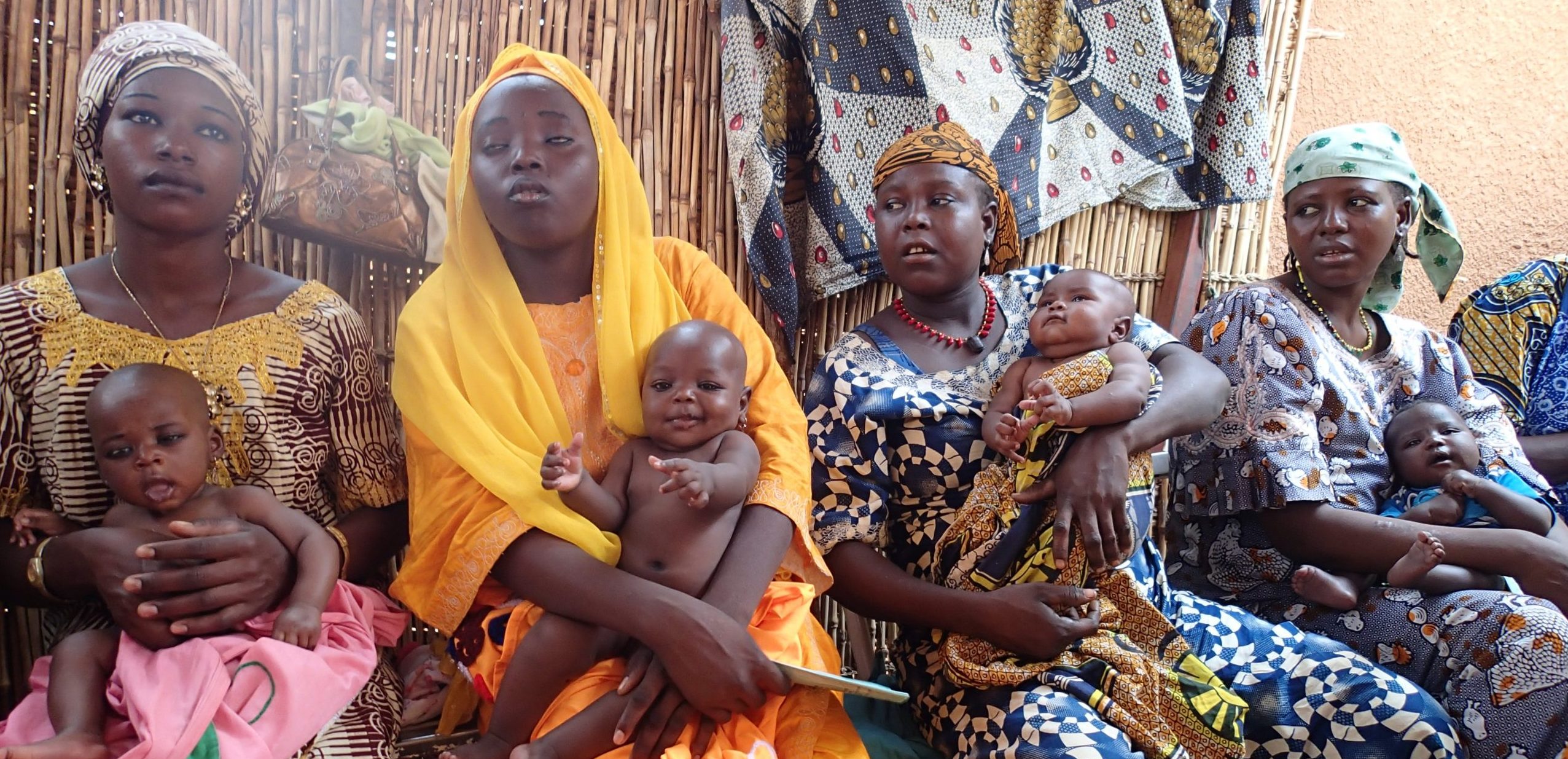
In Niger mothers wait for their postnatal consultation. ECHO partner Médecins Du Monde educates women about child spacing and the use of contraceptives.©EC/ECHO/Jean De Lestrange - Flickr
Putting the ‘universal’ into Universal Health Coverage schemes for family planning
29 June 2021
Lynda Keeru (follow her on Twitter) reports back from a recent ThinkWell [opens new tab] webinar on family planning and Universal Health Coverage (UHC). A range of speakers, including our own Sophie Witter, explored the different modalities for funding family planning services in low- and middle-income countries. You can watch a recording of the event on YouTube.
Empowering women to have their children by choice and not by chance can transform societies for the better. To achieve this, governments must invest in improving access to quality family planning services.
The webinar brought together experts in health financing and family planning to discuss how governments in low- and middle-income countries can pay for family planning services. The focus was on how these financing decisions can ensure that those most in need can access quality services. It is also clear that the way those investments are made and how that money is spent is critical. These decisions can be complicated by politics around health insurance and UHC, especially when it turns out that some approaches to UHC might not be as universal as promised. For example, many countries rely on National Health Insurance (NHI) to deliver a defined package of benefits to contributors and pay providers based on outputs. Are NHI approaches best suited to reaching those most in need with quality family planning services? The webinar sought to explore this important question.
In the webinar we heard that no country fully achieves all the coverage objectives and it is even harder for poorer countries. However, many countries want to reduce the gap between need and utilization and improve quality and financial protection. Health systems strengthening provides the instruments that that will help achieve these goals. These include a better mix, distribution and capability of workforce, investment to improve disease surveillance, reducing fragmentation, contracting NGOs for service delivery and provider payment reform.
What UHC brings to public policy on health coverage
Joe Kutzin of WHO explained that UHC is premised on the understanding that coverage is a right rather than an employee benefit. The unit of analysis for UHC should be the system and not individual schemes. Integrating family planning into health insurance should only be done when the insurance programme is universal.
The picture in sub-Saharan Africa
During the webinar, Jacob Kazungu presented results from a study, ‘Examining the level and inequity in health insurance coverage in 36 sub-Saharan African countries’ (read it on the BMJ Global health website), which revealed that de facto voluntary insurance for the majority of the population is not effective in achieving population coverage at scale. He found that three out four countries with health insurance coverage above 20% have publicly owned health insurance systems that are significantly tax funded as opposed to dependent on voluntary contributions. The recommendations from the study were that sub-Saharan countries should reconsider voluntary contributory health insurance mechanisms and instead reorient their health financing system towards tax-funded arrangements. This will contribute not only to resolving the challenge of low coverage but will also reduce inequalities in health insurance schemes in sub-Saharan Africa.
Barriers to NHI coverage and equity
Sophie Witter presented on the existing inequities in NHI coverage. Informality, lifecycle issues and gender all represent barriers to inclusion in employment-based schemes. Other barriers for inclusion include age, education, disability, religion, location, and refugee status. She argued that there’s a need for people to understand that formal coverage does not mean utilization. Family planning is not included in many benefit packages and there are physical and social access barriers like distribution of services, lack of transport, safety concerns, stigma etc. There are also perceptions of low quality, informal payments, poor awareness of benefits, delays in reimbursements of providers and poor provider attitudes which hinder utilization.
Utilization does not mean financial protection either – this is shown by the weak link between increases in health insurance use and protection from catastrophic payments and healthcare-related impoverishment. There’s still high dependence on out of pocket spending, especially in low-income countries. Financial commitment to health has been too limited to support equitable UHC in many settings.
Final points in the webinar focused on communities. We heard that it is important for family planning and reproductive health services to integrate and advocate with national systems. The role of the communities and the role of the end user of all these services – especially in holding governments accountable or helping to design programs that meet the needs of communities – is essential and must be recognized and given its rightful place. The community must be empowered to continuously provide social accountability to governments and partner with them.
Speakers
- Joe Kutzin, WHO (follow Joe on Twitter)
- Jacob Kazungu, KEMRI Wellcome Trust (follow Jacob on LinkedIn)
- Prastuti Soewendo, Ministry of Health, Indonesia
- Sophie Witter, Queen Margaret University Edinburgh/ReBUILD for Resilience
- Brendan Hayes, World Bank (follow Brendan on LinkedIn)
- Elisha Dunn-Georgoiu, PAI
- Nomi Fuchs-Montgomery, Bill and Melinda Gates Foundation (see Nomi on the BMGF website)